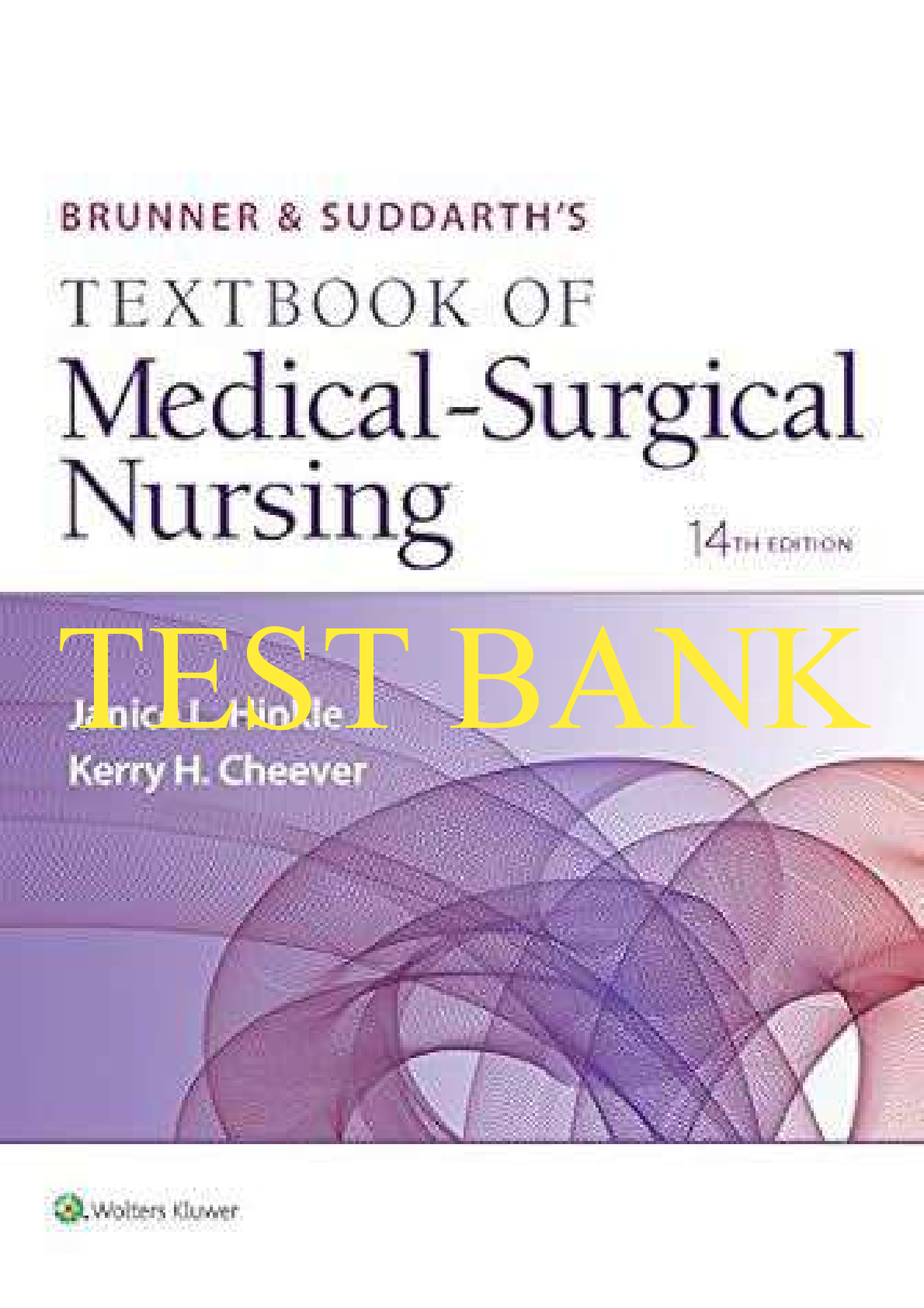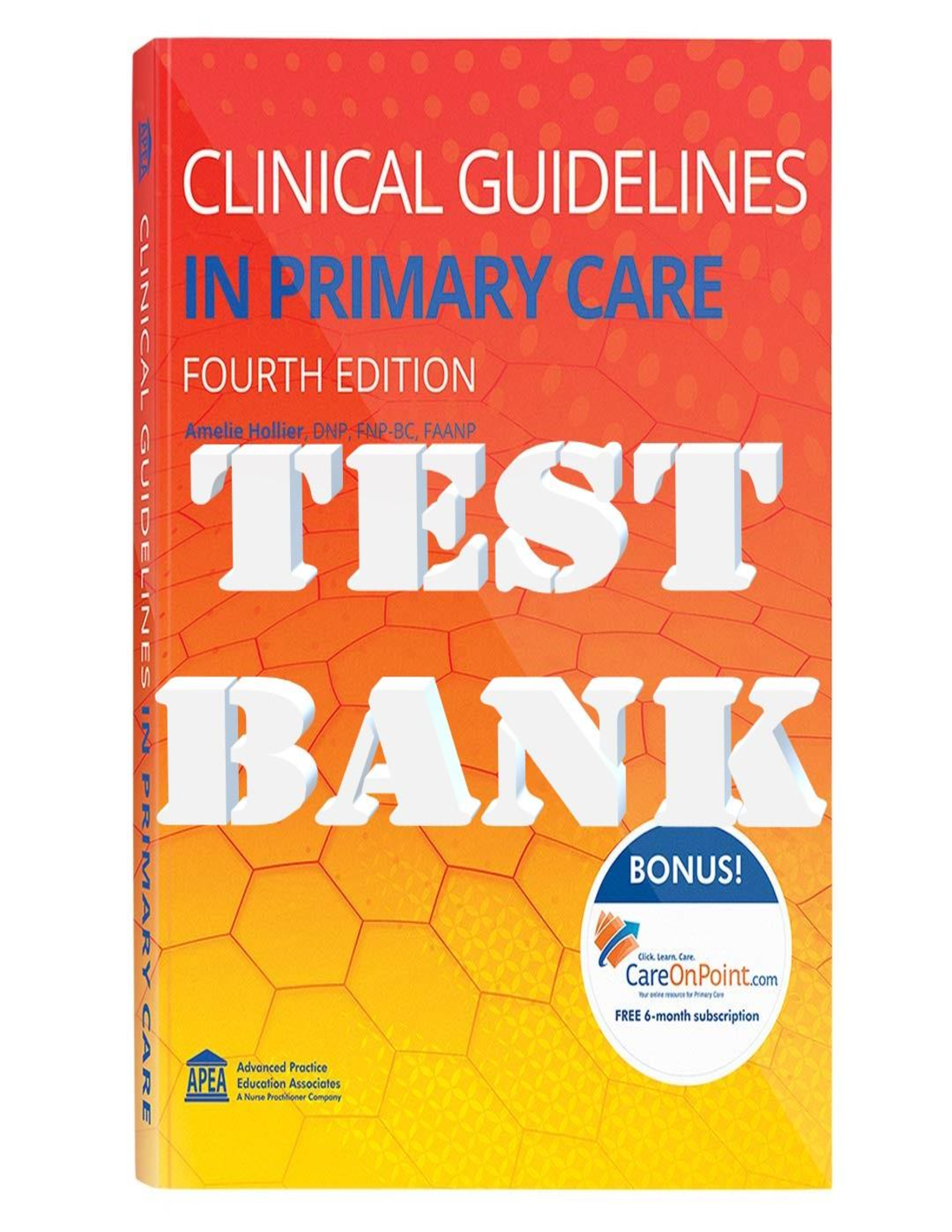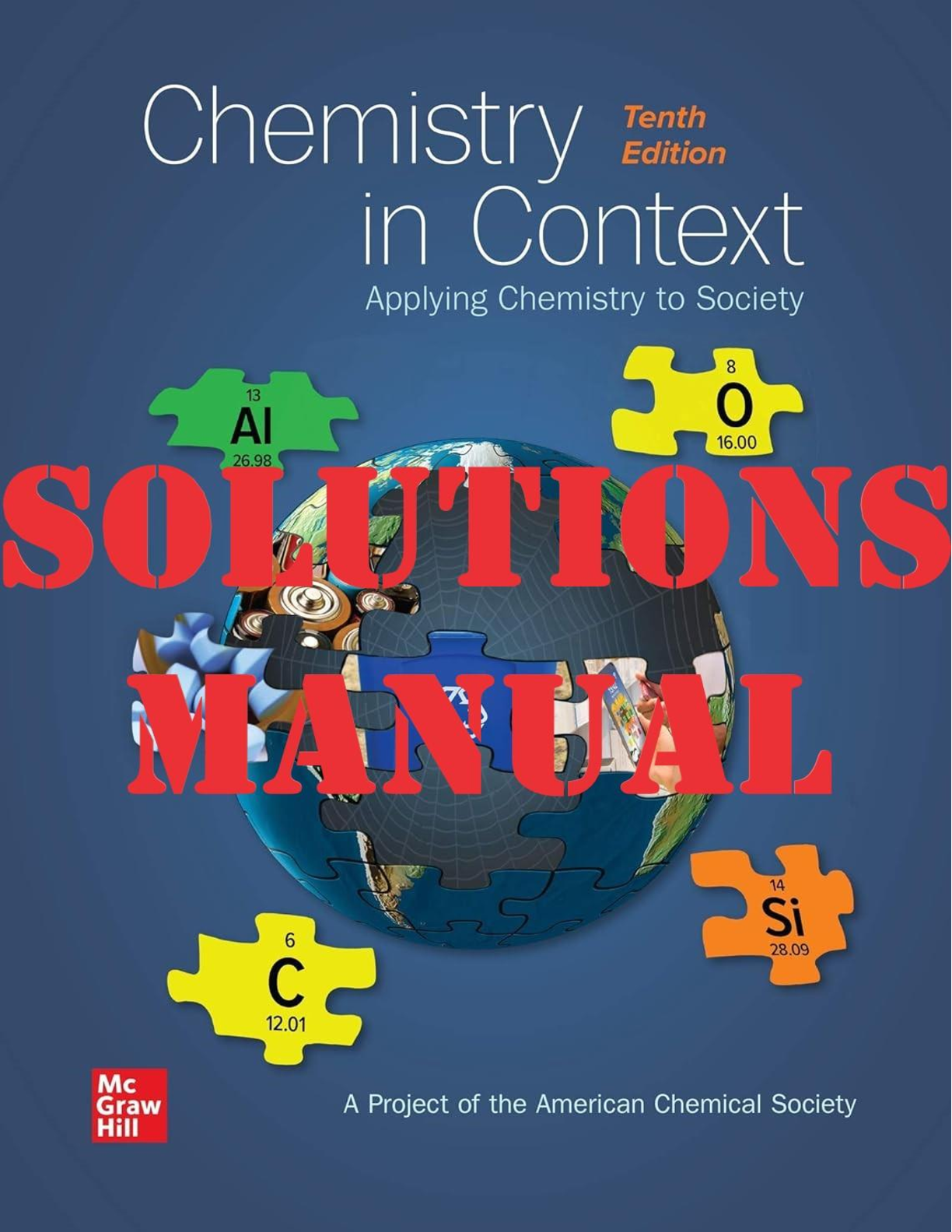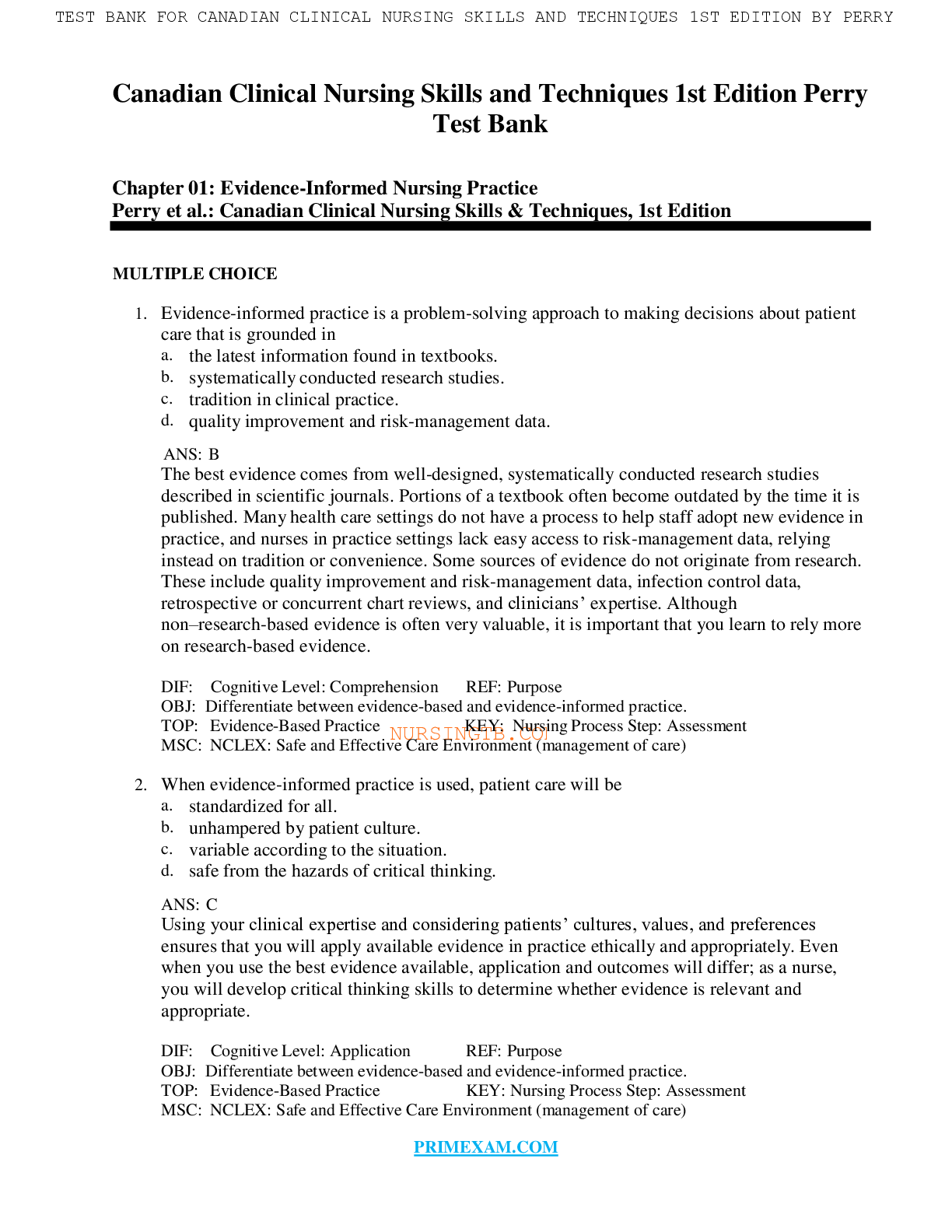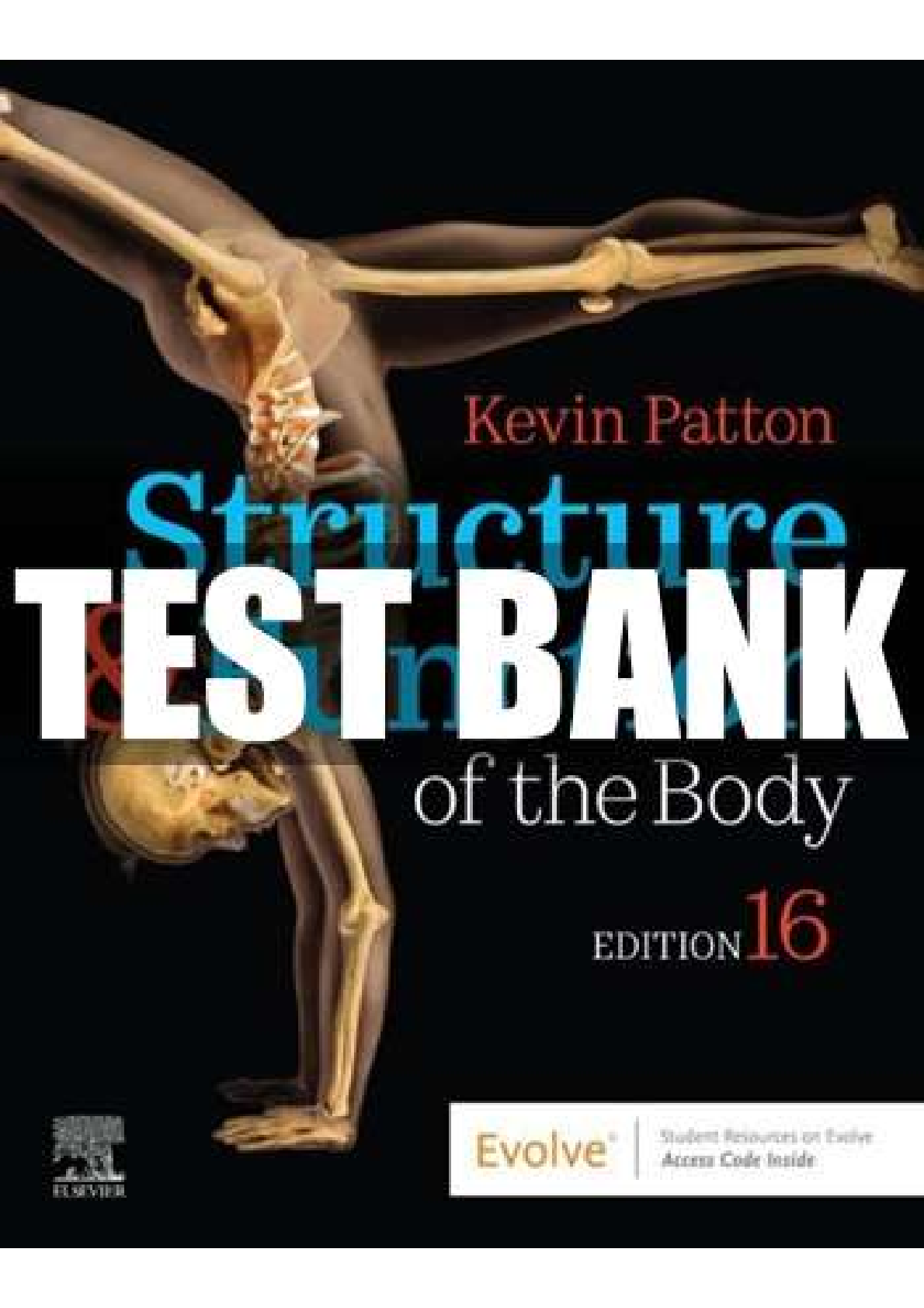healthcare > TEST BANKS > Anatomy And Physiology 10th By Kevin Patton TEST BANK (All)
Anatomy And Physiology 10th By Kevin Patton TEST BANK
Document Content and Description Below
Anatomy and Physiology 10th Edition Patton Test Bank Chapter 01: Organization of the Body Patton: Anatomy and Physiology, 10th Edition MULTIPLE CHOICE 1. Which of the following describes anatomy... ? a. Using devices to investigate parameters such as heart rate and blood pressure b. Investigating human structure via dissections and other methods c. Studying the unusual manner in which an organism responds to painful stimuli d. Examining the physiology of life ANS: B DIF: Memorization REF: p. 3 TOP: Anatomy and Physiology 2. Systemic anatomy is a term that refers to: a. physiological investigation at a microscopic level. b. anatomical investigation that begins in the head and neck and concludes at the feet. c. anatomical investigation that uses an approach of studying the body by systems—groups of organs having a common function. d. anatomical investigation at the molecular level. ANS: C DIF: Memorization REF: p. 4 TOP: Anatomy and Physiology 3. Physiology can be subdivided according to the studied. a. type of organism b. organizational level c. systemic function Anatomy and Physiology 10th Edition Patton Test Bank d. All of the above are correct. ANS: D DIF: Memorization REF: p. 4 TOP: Physiology 4. Physiology: a. recognizes the unchanging (as opposed to the dynamic) nature of things. b. investigates the body’s structure. c. is concerned with organisms and does not deal with different levels of organization such as cells and systems. d. is the science that examines the function of living organisms and their parts. ANS: D DIF: Memorization REF: p. 4 TOP: Physiology 5. One of the basic principles of the standardized terminology is the avoidance of , or terms that are based on a person’s name. a. homonyms b. antonyms c. eponyms d. synonyms ANS: C DIF: Memorization REF: p. 5 TOP: Language of Science and Medicine 6. Metabolism refers to: a. the chemical basis of life. b. the sum of all the physical and chemical reactions occurring in the body. c. an organization of similar cells specialized to perform a certain function. d. a subdivision of physiology. ANS: B DIF: Application REF: p. 5 TOP: Characteristics of Life 7. From smallest to largest, the levels of organization of the body are: a. organism, chemical, tissue, cellular, organ, system, organelle. b. chemical, microscopic, cellular, tissue, organ, system, organism. c. organism, system, organ, tissue, cellular, organelle, chemical. d. chemical, organelle, cellular, tissue, organ, system, organism. ANS: D DIF: Memorization REF: p. 6 TOP: Levels of Organization 8. The smallest living units of structure and function in the body are: a. molecules. b. cells. c. organelles. d. atoms. ANS: B DIF: Memorization REF: p. 7 TOP: Levels of Organization 9. An organization of many simNilUarRcSelIlsNthGatTaBre.sCpeOciMalized to perform a certain function is called a(n): a. tissue. b. organism. c. system. d. organ. Anatomy and Physiology 10th Edition Patton Test Bank ANS: A DIF: Memorization REF: p. 7 TOP: Tissue Level 10. An organ is one organizational level lower than a(n): a. system. b. cell. c. organelle. d. tissue. ANS: A DIF: Memorization REF: p. 7 TOP: Organ Level 11. The reproductive system includes all of the following except the: a. testes. b. ovaries. c. ureter. d. penis [Show More]
Last updated: 4 months ago
Preview 1 out of 993 pages
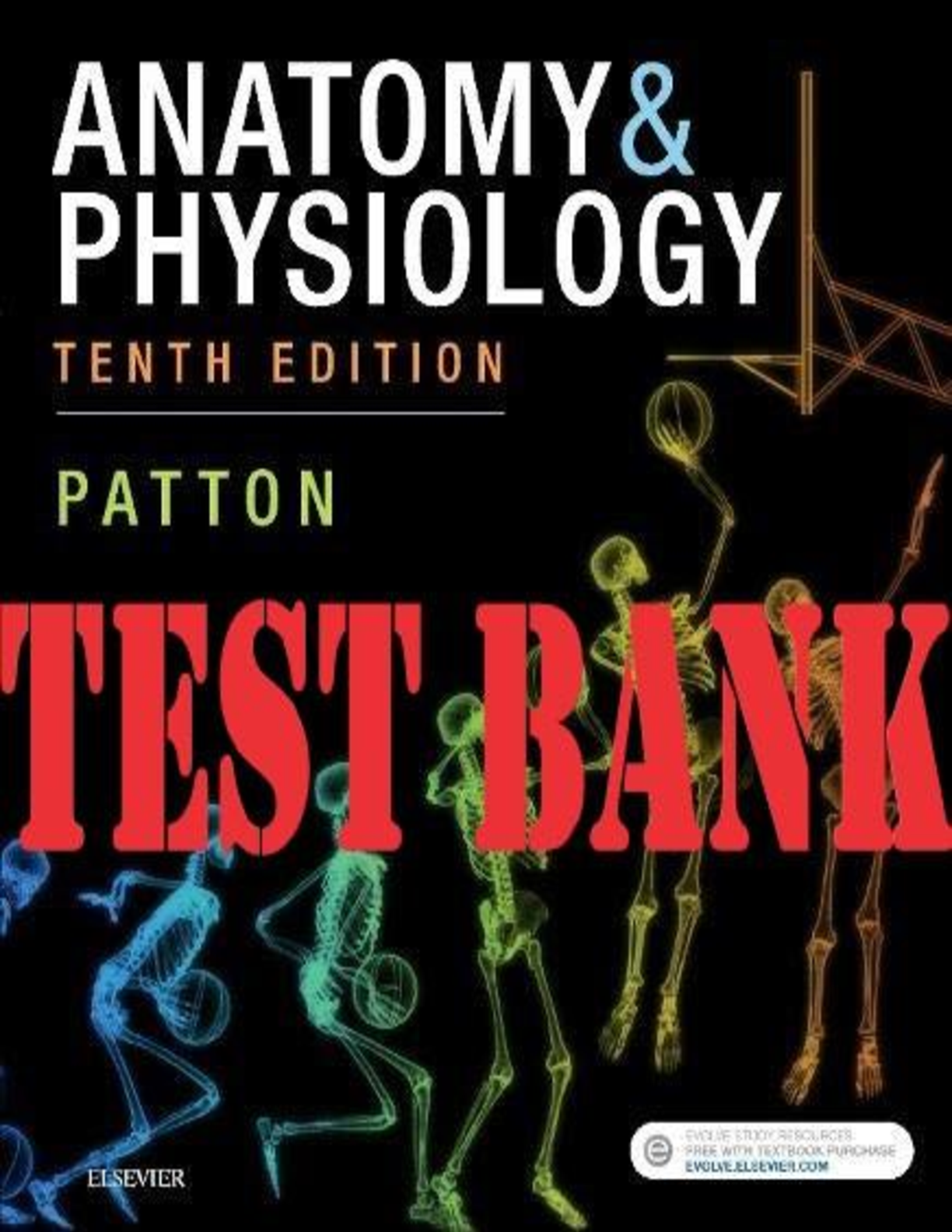
Buy this document to get the full access instantly
Instant Download Access after purchase
Buy NowInstant download
We Accept:

Reviews( 0 )
$29.50
Can't find what you want? Try our AI powered Search
Document information
Connected school, study & course
About the document
Uploaded On
Sep 25, 2024
Number of pages
993
Written in
Additional information
This document has been written for:
Uploaded
Sep 25, 2024
Downloads
0
Views
35







